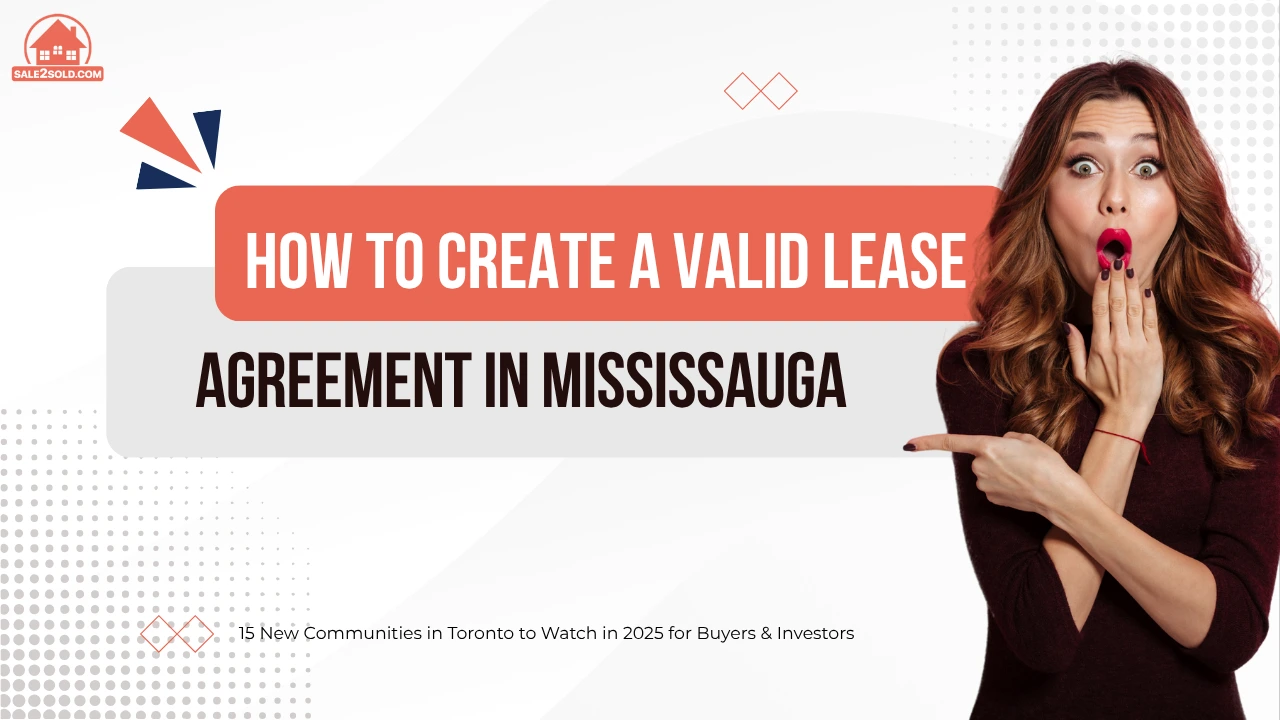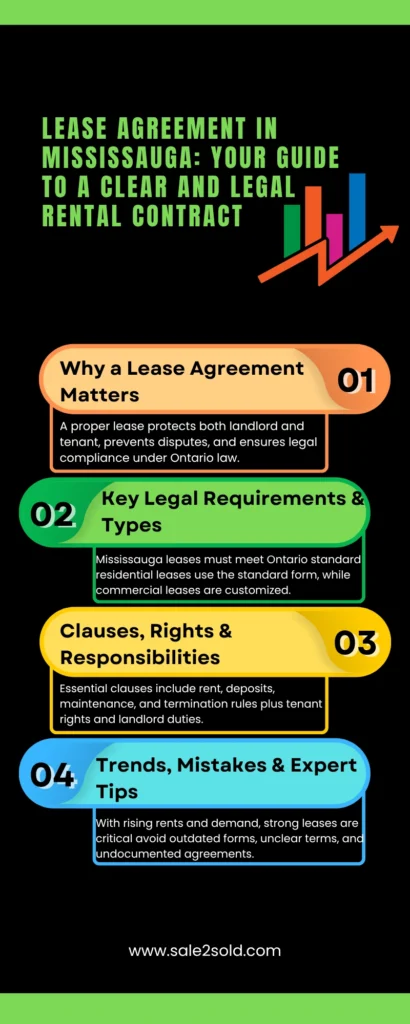How to Create a Valid Lease Agreement in Mississauga


Table of Contents
ToggleA Lease Agreement in Mississauga is one of the most important documents when renting or leasing a property. It sets the foundation for a clear understanding between the landlord and tenant, outlining their rights, responsibilities, and the terms of the rental. Without a properly drafted lease, disputes can arise over payments, maintenance, or property use. Mississauga’s housing and rental markets are highly active, making it even more crucial to have an agreement that complies with Ontario law and protects both sides.
A lease agreement is a legally binding contract that defines the terms of renting a residential or commercial property. In Mississauga, residential leases must follow the Ontario Standard Lease format, ensuring consistency across the province. Commercial leases, on the other hand, can be customized but must still meet contract law requirements.
The primary purpose of a Lease Agreement in Mississauga is to make sure both landlord and tenant understand their obligations. It also serves as proof in case legal disputes arise. This document should clearly state the rent amount, duration of tenancy, conditions for renewal, and any special rules such as pet policies or parking arrangements.
For a lease to be enforceable in Mississauga, it must follow the rules outlined in Ontario’s Residential Tenancies Act (RTA). Essential elements include:
Residential leases must use the standard provincial form, while commercial leases are negotiated individually. A valid Lease Agreement in Mississauga ensures that neither party can claim ignorance of the agreed upon terms.
Residential leases cover houses, condos, basement apartments, and other dwellings. These agreements usually last for 12 months, after which they can automatically switch to month-to month unless renewed. Tenants have the right to request changes, and landlords must follow proper legal processes for any rent increases or evictions.
Commercial leases are far more detailed because they cover business use. They often include clauses on rent escalation, maintenance costs, signage, renovations, and renewal options. Both landlord and tenant must review every clause thoroughly before signing because commercial leases are legally binding and not covered by the RTA.
A strong lease protects both parties. Key clauses to include in a Lease Agreement in Mississauga are:
Leaving out these clauses opens the door for misunderstandings.
Tenants in Mississauga have the right to live in a safe and well maintained property. They must pay rent on time and keep the unit in good condition, but they are also protected from unlawful eviction or sudden rent hikes.
Landlords must maintain the property, handle repairs, and respect tenants’ privacy by giving proper notice before entering. If a landlord fails to meet these obligations, tenants can seek help from the Landlord and Tenant Board. An explicit Lease Agreement in Mississauga helps prevent these issues from escalating.
Following these steps ensures your Lease Agreement in Mississauga is legally binding and clear.
There are situations where a tenant may need to end their lease early. This can be done through assignment or subletting, provided the landlord consents. Landlords cannot unreasonably refuse such requests.
For landlords, terminating a lease requires legal grounds, such as non-payment of rent or the need to use the property personally. They must give proper written notice and, in some cases, provide compensation. A well drafted Lease Agreement in Mississauga includes these terms clearly, reducing conflict.
Poorly written leases lead to disputes. Common mistakes include:
Avoiding these mistakes ensures your Lease Agreement in Mississauga holds up if challenged.
Mississauga’s rental market remains competitive. As of 2025, one-bedroom apartments average around $2,400 per month, while two-bedrooms cost nearly $3,000. Vacancy rates are low, and demand continues to rise due to population growth.
These trends highlight why landlords and tenants must rely on strong agreements. With higher rents, both sides have more to lose if disputes arise. A detailed Lease Agreement in Mississauga is essential to protect investments and living arrangements.
Experts predict that rental demand will stay high throughout 2025, which means competition for units will remain intense. Landlords are likely to enforce stricter screening, and tenants will want more security in their agreements. Market conditions suggest that having a detailed Lease Agreement in Mississauga will be even more critical as disputes over rent and conditions increase.
A Lease Agreement in Mississauga is not just a formality it’s a legal safeguard that benefits both landlords and tenants. By using the correct forms, including essential clauses, and following Ontario laws, you avoid misunderstandings and create a smooth tenancy. Whether you’re renting out a property or moving into one, a well crafted lease ensures everyone is protected.